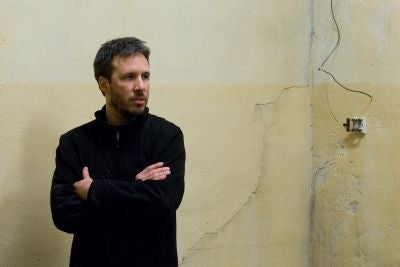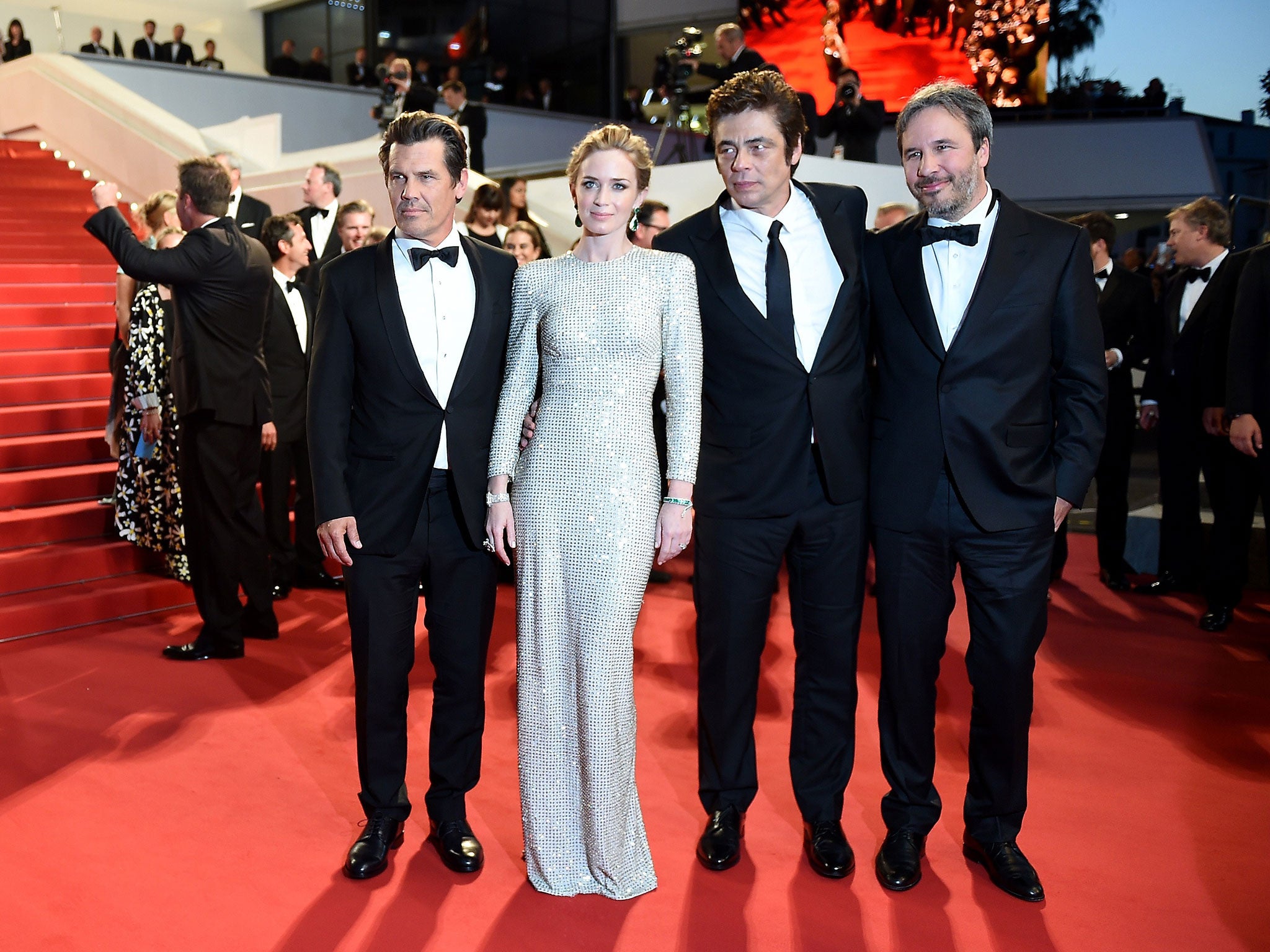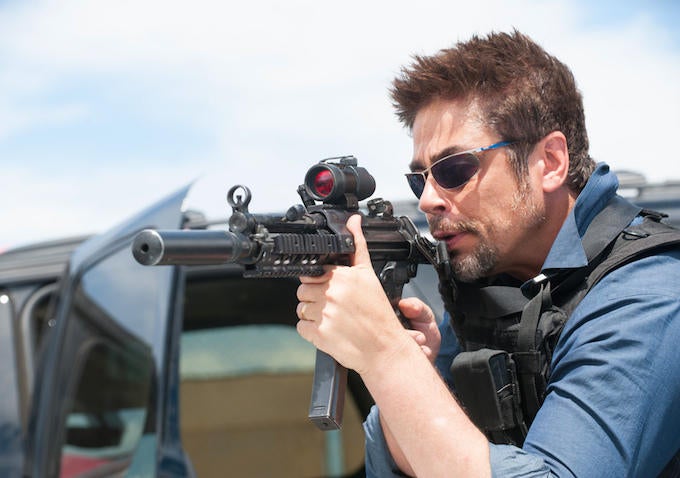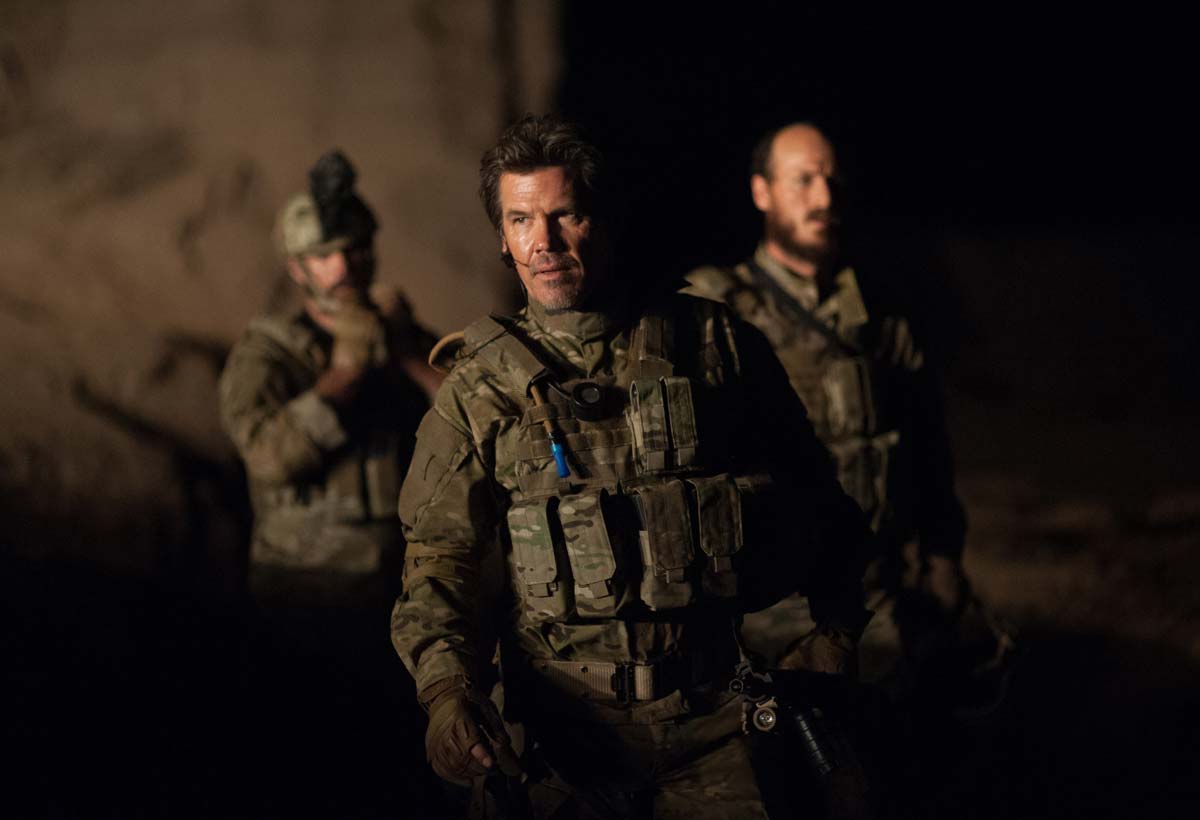Sicaro director Denis Villeneuve interview: Charting his amazing rise from the Canadian arthouse to Blade Runner 2
‘Hollywood was not my fantasy’

Denis Villeneuve is having a “How did I get here?” moment. Until a few years ago, the Québécois director was a little- known player on the French-Canadian arthouse scene. Now, he’s one of the hottest directors in Hollywood: his latest film, Sicario, is a visceral, starry action-thriller that was lauded at this year’s Cannes and he is getting ready to take the lead on of the most long-awaited sequels in cinema history: the follow-up to Ridley Scott’s classic sci-fi Blade Runner.
It has all taken the genial 47-year-old by surprise. “First of all, I don’t have a career plan,” he says. “I didn’t think I’d do movies in Los Angeles. I never thought it would happen. In fact, it was not a fantasy. For me, I said ‘If ever I go there, they will ask me to do Legally Blonde 5. I prefer to make my own movies at home, with not a lot of money and be free to make movies the way I love’.”
His early career saw him do just that. His subjects were hardly mainstream: Maelström (2000) dealt with an alcoholic depressive woman; Polytechnique (2009) focused on the 1989 “Montreal Massacre” when 25-year-old Marc Lépine went on to a campus armed with a rifle and shot 28 people, killing 14 women.

Then came 2010’s Incendies, his powerful drama about twins trying to uncover their mother’s past in the Middle East. With two Radiohead songs memorably used on the soundtrack, the film was Villeneuve’s international breakout. Nominated for an Oscar for Best Foreign Film, it got him noticed by the US film community, much to his shock. “I always thought, like everyone, that Hollywood was a superhero factory.”
Sent the script for Prisoners, a bleak child kidnap drama, Villeneuve accepted the meeting. “I said to my wife [Canadian actress Macha Grenon], ‘That’s cool. I will experience what it’s like to meet some executives, just for the fun of it.’ And so I went there without any pressure, and that’s why I think I got it,” he says. “It was like, ‘Whoops! Now I will have to do the movie’.”
Thankfully, the move into the mainstream came off. Starring Hugh Jackman and Jake Gyllenhaal, Prisoners was strong at the box-office and its British cinematographer, Roger Deakins, received an Oscar nomination. “I heard all the horrible stories about a director being crushed by the system,” notes Villeneuve. “It didn’t happen. I felt totally respected.” It also cemented his relationship with Gyllenhaal; they then made the unsettling doppelgänger drama Enemy.

If both films proved Villeneuve was a director who could maintain an uncompromising vision while handling A-list talent, it made him the ideal candidate to direct Sicario. Scripted by former actor Taylor Sheridan, it stars Emily Blunt as Kate Macer, an FBI agent manipulated and morally compromised as she’s brought in by Josh Brolin’s CIA suit for an off-the-books operation to bring down a Mexican drugs cartel.
Featuring Benicio Del Toro as the titular “sicario” – Mexican slang for “hitman” – the film is the most thought-provoking examination of the “war on drugs” since Steven Soderbergh’s Oscar-winning Traffic (which also starred Del Toro). “I’m very happy, because I really did the movie I wanted to do,” Villeneuve says. “If you don’t like it, it’s my fault. They gave me carte blanche and I did what I want.”
Villeneuve himself has already called it “a dark poem”. And from the gliding aerial shots (courtesy of Roger Deakins again) to the nerve-jangling sound design and rhythmic score, it’s a perversely elegant Tex-Mex thriller – every bit as anti-Hollywood as the Coens’ Brolin-starring, Deakins-shot No Country For Old Men.

Watch Apple TV+ free for 7 day
New subscribers only. £9.99/mo. after free trial. Plan auto-renews until cancelled.
ADVERTISEMENT. If you sign up to this service we will earn commission. This revenue helps to fund journalism across The Independent.

Watch Apple TV+ free for 7 day
New subscribers only. £9.99/mo. after free trial. Plan auto-renews until cancelled.
ADVERTISEMENT. If you sign up to this service we will earn commission. This revenue helps to fund journalism across The Independent.
Villeneuve was particularly fascinated by the increasingly grey area between the lawless and the law-enforcers. “First of all, I’m not an American citizen. But as a North American, what is happening at the border of America and Mexico is sadly meaningful. The idea that there is a place in North America where there is a disintegration of society and democracy being threatened, the idea that citizens of Mexico don’t trust their institutions anymore… I think we must be vigilant to protect democracy.”

Sicario follows Villeneuve’s earliest works in being driven by a female protagonist. For his feature debut, 1998’s August 32nd on Earth, he decided to write about a woman surviving a near-fatal car crash because, as a man, “I have a distance”. His upbringing, in a small village was also dominated by two very prominent figures – his grandmothers. “They were very powerful women, and they were enemies.”
Calling his parents’ coming together “very Romeo and Juliet”, given the familial antipathy, these strong females proved hugely influential. “There’s a lot of work to do for women’s rights,” he says. “I think that, as a filmmaker, in a very clumsy way sometimes.” In the case of Sicario, he refused to turn Blunt’s character Kate into a man – something his screenwriter had been “advised” to do. “There are not good parts for women in movies these days,” he says. “[This is] my contribution, I think.”
Growing up, Villeneuve was interested in science, though he eventually abandoned pursuing it further in favour of studying film at Montreal’s University of Quebec. In 1991, he won Radio Canada’s youth film competition La Course Europe-Asie, though it took another five years for him to follow it up with a contribution to portmanteau film Cosmos.
There was even a nine-year gap between his second and third films, Maelström and Polytechnique, partly because Villeneuve wanted to spend time with his wife and three children and partly because he was struggling to write his own scripts. “I’m a very slow screenwriter. It takes time for me to write a screenplay. Also, I feel it’s not my strength.” Now he has his pick of Hollywood’s finest.
Villeneuve has already wrapped his next film, Story of Your Life, a sci-fi set after an alien landing, starring Amy Adams as a linguist asked to determine if the creatures come in peace. Then comes the big one: the Blade Runner sequel, shooting next summer. With Harrison Ford signed up once again, it promises to solve one of cinema’s greatest mysteries: whether Ford’s android-hunter Deckard is, in fact, an android himself.
Despite the pressure of expectations upon the project, Villeneuve couldn’t resist a story co-devised by Ridley Scott. “I have his blessing,” he insists. “And I have massive respect for him. He’s a master.” But he wants to make one thing very clear. “I don’t have the pretence to say I will do as Ridley Scott. I am totally different.”
‘Sicario’ opens on 9 October
Join our commenting forum
Join thought-provoking conversations, follow other Independent readers and see their replies
Comments
Bookmark popover
Removed from bookmarks